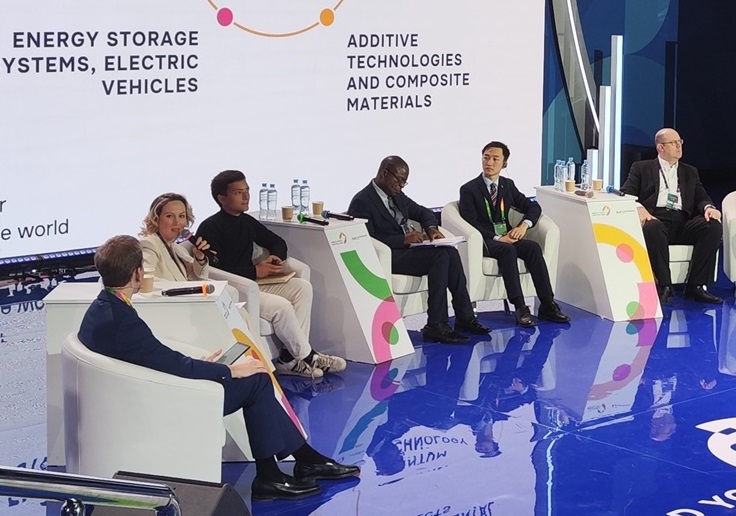Panelists discussed global cooperation in education and science
A landmark event of the first days of the World Youth Festival was a panel discussion on the subject “Global Cooperation in Education and Science: Developing the Potential of International Youth in Today's World.” It brought together leading experts in the field of education – representatives of government authorities of Russia and partner countries, the university community, business, and active youth.

Denis Sekirinsky, Deputy Minister of Science and Higher Education of the Russian Federation, spoke about the place of Russian education in the world, priority areas of education and science for young people, as well as about creating conditions for obtaining high-quality education in Russia for foreign youth. Amon Murwira, the Minister of Higher Education, Innovation, Science and Technology Development of the Republic of Zimbabwe, presented a vision of the education system for Zimbabwe and Africa as a whole, which will ensure a rapid breakthrough in technological development and growth of the national economy. Vladimir Shevchenko, Rector of the National Research Nuclear University “MEPhI” focused in his speech on how higher education is changing in response to changing demands of youth and business.
In addition, Grigory Gurov, Chairman of the Board of Directors of the Russian Movement of Children and Youth “Movement of the First”, Zongxu Xie, a member of the International Youth Council Impact Team 2050 under the CEO of Rosatom, and Ignacio Martin Villarroya, organizer of the Youth Movement for the Climate of Argentina, took part in the discussion.
Speaking at the session, a representative of one of the largest employers in Russia and the world, Rosatom's Deputy Director General for HR Tatiana Terentieva shared the principles of Rosatom's work with young people and experience in creating an innovative educational ecosystem: “To meet the global challenges of the present and shape the technological landscape of the future, it is necessary to educate young people and develop talents. We are therefore building an ecosystem of human resource development based on the principles of partnership and taking into account such trends as digitalization and greening of professions. And we are also developing the competencies of the future: STEM and 4C social skills – cooperation, creativity, communication and critical thinking. Our ecosystem involves schools, parents, teachers, universities and employers – our enterprises. Such comprehensive partnership brings benefits to every party engaged. And I am pleased that our work resonates in the hearts of young people – 79% of Rosatom's young employees consider self-development to be their highest priority.”
Tatiana Terentieva stressed that the Rosatom ecosystem is open to the whole world and cited as an example a number of projects involving young people from different countries. Among them are international shifts at the Artek camp, the AtomSkills Professional Skills Championship, Impact Team 2050, as well as the new BRICS YEA platform – Global Partners Network. The speaker paid special attention to the flagship global educational project Obninsk Tech, which will become a major educational hub for training Russian and foreign specialists, a research center and a venue for events on advanced nuclear and related technologies.
